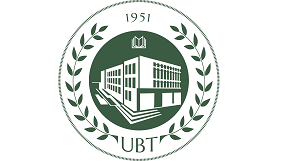BESNIK HABIPI, DRITAN AJDINAJ, HAZBI BIÇAKU
Department of Wood Industry; Agricultural University of Tirana, ALBANIA
“EUROBIÇAKU” sh.p.k.; Autostrada Dr-Tr, Mbikalimi Fllakë, Durrës, ALBANIA
e-mail: * besnikhabipi@hotmail.com, dajdinaj@ubt.edu.al, biku@eurobicaku.com
Abstract
In this research, the effect of different pressing temperatures on overlaying quality of membrane presses was studied. There were applied six pressing temperatures for overlaying medium density fibreboard with polyvinyl chloride film, respectively 80°C, 85°C, 90°C, 95°C, 100°C and 105°C. These temperatures were lower than those usually applied, which range between 110°C and 120°C. The pressing time continued in total 2 minutes and the pressure applied by air was 6 bars. The PVC film was 0.4 mm thick and weighted 2.5 kg/m2. The MDF to be overlaid was with density 790 kg/m3. There were produced 8 pieces for each temperature, in total 48, with dimensions 12×12 cm. After 72 hours, from each piece was sawn one sample from central zone, with dimensions 5×5 cm. For measurement of surface soundness was applied the method specified by the standard EN 311. This method measures the overlaying quality by means of tensile force through a steel axe, glued with MDF sample with PU adhesive. Resultes showed that temperatures 80°C and 85°C totally failed to achive a strong bond between MDF and PVC foil. The temperature 90°C failed in 75% of tested pieces, while temperature 95°C failed in 25% of them. The two highest temperatures gave a strong bond for all samples, resulting to MDF substrate destruction. The results obtained present useful information for furniture manufacturing sector, by the cost effective viewpoint.
Keywords: pressing temperature, membrane press, PVC, overlaying.

